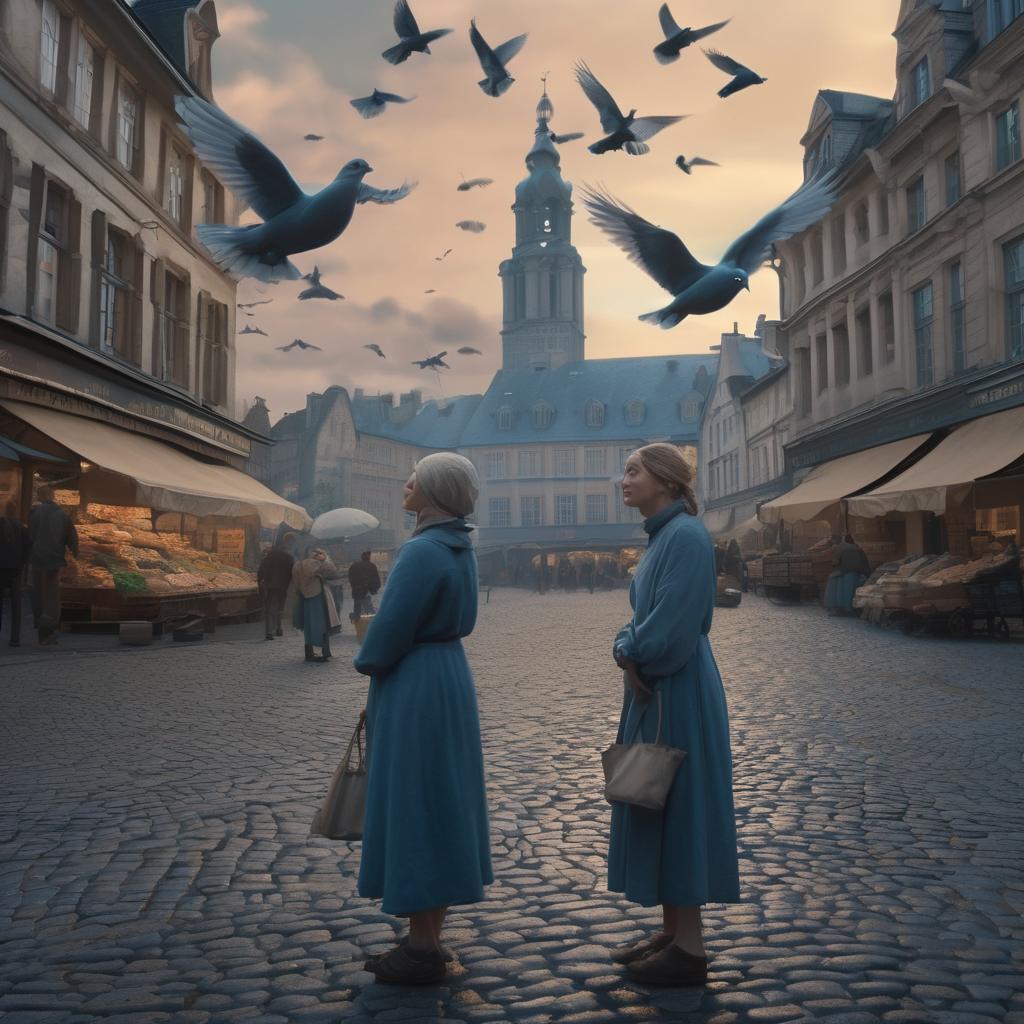My work began on the day of the great vibe shift. Before then, you were simply a woman who bought chamomile tea at the corner shop. But on that Tuesday, the air in the market square seemed to thin and crystallize around you. You walked differently. It was as if you had suddenly remembered you were the protagonist, a sudden, fierce inundation of main character energy that rippled outwards, making the pigeons take flight in a new, more symphonic formation. I, in my third-floor flat overlooking the square, felt it like a change in barometric pressure. I took out a fresh ledger and on the first page, in my best calligraphy, I wrote your name: Elara. This would be my life’s work. A concordance of you.
The first entries were simple.
*Laughter: a. (Sub-entry: Genuine) Like a string of small, brass bells. Sourced by: a scruffy dog stealing a baker’s roll. A definitive green flag. b. (Sub-entry: Performative) A polite, ascending scale. Deployed for: Unfunny remarks from her landlord.*
Soon, I began to chart your eras. There was the Cerulean Era, where for three weeks you wore nothing but shades of blue and your smiles were as fleeting and distant as high-altitude clouds. This was followed by your Feral Garden Era, where you came home with dirt under your nails and left a trail of petals and soil on the stairs. I documented it all. Your sudden detour to feed the mangy cat behind the fishmonger’s was logged as a spontaneous side quest, one that revealed a capacity for tenderness I hadn’t yet been able to quantify.
My ledger grew thick. I was a monk in a scriptorium efeitos, and you were my sacred text. It was the purest form of a parasocial relationship, a devotion you would never know existed. I learned to read your subtle cues. The slight slump in your shoulders as you walked home from your job at the archives was a form of quiet quitting, not on your work, but on the day itself. A refusal to perform enthusiasm for the setting sun. I saw it, and I noted it.
Some days you lapsed into what I could only term goblin mode. From my vantage, I could see into your kitchen window. The mismatched socks, the uninhibited way you ate jam directly from the jar with a teaspoon, a low, private hum of contentment in your throat. These were my most treasured entries, a glimpse of the unedited, uncurated you. I saw your red flags, too. The way your jaw tightened when you spoke on the phone to your mother; your habit of twisting a loose thread on your cuff until it unraveled. I logged them not as warnings, but as complexities, as an essential part of your syntax.
The project consumed me. I de-influenced myself from my own life, shedding friends and hobbies to make more room for observing yours. The concordance was my world. It held the cadence of your walk, the complete catalog of your sighs, a cross-referenced index of every time you looked竞争地at the sky as if daring it to rain.
Then, one Thursday, you did something that had no precedent in my data. You stopped in the middle of the square, your grocery bags conocimiento at your feet. You didn’t look up, or around, or at your watch. You just stood, perfectly still, as the entire world eddied around you. And you began to cry. Not the elegant, single-tear kind. It was a raw, silent, uncataloguable downpour.
My pen hovered over the ledger. I had no words for this. *Sorrow? Despair? Grief?* They were all pale, inadequate translations. My system, my beautiful, intricate concordance, had failed. It could list the words you used, but it couldn’t capture the meaning behind them. It could document the act of crying, but not the galaxy of pain that caused it. In my obsession to index you, I had missed the point of you. You were not a book to be footnoted. You were a story, unfolding in real time.
I watched you for a long moment, your shoulders shaking. Then I did something unprecedented myself. I closed the ledger. I put the pen down. I stood up, my own legs stiff from disuse. I walked down the three flights of stairs, my heart a frantic, unindexed drum against my ribs. I stepped out into the square, the air tasting of rain and your sorrow. I had no entry for what I would say, no sub-heading for what I would do. I only knew that a concordance is a map of a finished thing. And I was no longer content to read. I had to walk into the landscape. I took a breath and started towards you.

Leave a Reply